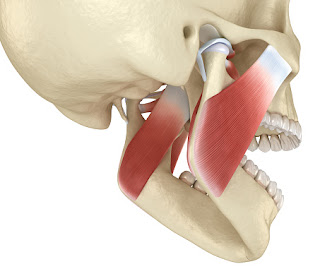What Is Trigeminal Neuralgia
The trigeminal nerve is the biggest and most intricate nerve of the 12 cranial nerves. It extends from the base of the skull to the face. It is primarily responsible for transmitting sensations from the face to the brain. Trigeminal neuralgia is a type of chronic pain that occurs as a result of this nerve misfiring. There are number of treatments which are suitable for people who Struggling with Trigeminal Neuralgia and give relief from the pain.
Trigeminal neuralgia has been called the suicide disease due to the severity of the pain associated with it. The first step in avoiding pain is to avoid triggers. If your pain is due to wind, then you can avoid sitting near a window. Wearing a scarf can also help. At times hot and spicy food can also trigger the pain and thus they should be avoided.
TN is associated with a variety of conditions. TN can be caused by a blood vessel pressing on the trigeminal nerve as it exits the brain stem. This compression causes the wearing away or damage to the protective coating around the nerve. TN symptoms can also occur in people with multiple sclerosis, a disease that causes deterioration of the trigeminal nerve's myelin sheath. Rarely, symptoms of TN may be caused by nerve compression from a tumor, or a tangle of arteries and veins called an arteriovenous malformation. Injury to the trigeminal nerve may also produce neuropathic facial pain.
Symptoms
Trigeminal neuralgia symptoms may include one or more of these patterns:
Episodes of severe, shooting or jabbing pain that may feel like an electric shock
Spontaneous attacks of pain or attacks triggered by things such as touching the face, chewing, speaking or brushing teeth
Bouts of pain lasting from a few seconds to several minutes
Episodes of several attacks lasting days, weeks, months or longer - some people have periods when they experience no pain
Constant aching, burning feeling that may occur before it evolves into the spasm-like pain of trigeminal neuralgia
Pain in areas supplied by the trigeminal nerve, including the cheek, jaw, teeth, gums, lips, or less often the eye and forehead
Pain affecting one side of the face at a time, though may rarely affect both sides of the face
Pain focused in one spot or spread in a wider pattern
Attacks that become more frequent and intense over time
Treatments
The most common medication that is prescribed is carbamazepine. Carbamazepine is initially taken in a low dose twice a day and it increased slowly as needed. There are other medications available which can be used for treating trigeminal neuralgia. They include oxcarbazepine, lamotrigine and phenytoin. Other drugs, including clonazepam and gabapentin.
Surgery is often an option for pain relief. The goal of trigeminal neuralgia surgery is to stop the blood vessel from compressing the trigeminal nerve or to damage the trigeminal nerve to keep it from malfunctioning. Damaging the nerve often causes temporary or permanent facial numbness, and with any of the surgical procedures, the pain can return months or years later.
There is research finding that compressed nerves, caused by an abnormal blood vessel, may cause TN pain. An upper cervical chiropractor offering options for trigeminal neuralgia will correct misalignments of the spine, helping restore proper communication between the spinal cord, nerves and brain by removing compression from the brain stem and the nerves surrounding it. Many patients find this eases pain.
Some individuals manage trigeminal neuralgia using other techniques or therapies, usually in combination with drug treatment. These therapies offer varying degrees of success. Some people find that low-impact exercise, yoga, creative visualization, aroma therapy, or meditation may be useful in promoting well-being. Other options include acupuncture, upper cervical chiropractic, biofeedback, vitamin therapy, and nutritional therapy. Some people report modest pain relief after injections of botulinum toxin to block activity of sensory nerves.
When to see a doctor
If you experience facial pain, particularly prolonged or recurring pain or pain unrelieved by over-the-counter pain relievers, see your doctor.




Comments
Post a Comment